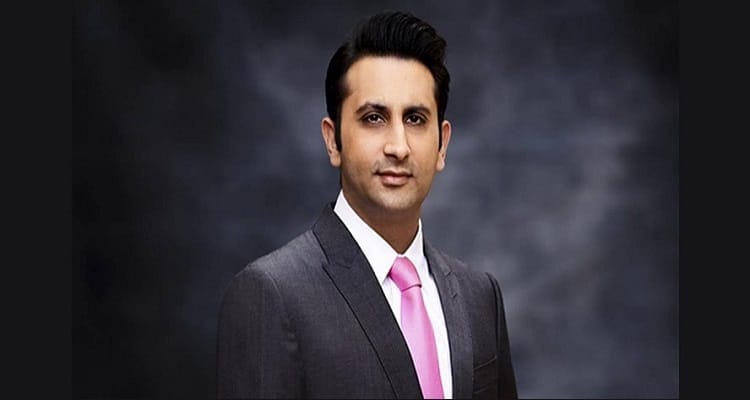Cooperation needed among multi-lateral organisations to deal with future outbreaks: Adar Poonawalla
Speaking during the World Economic Forum (WEF) Annual Meeting 2023, Poonawalla said he is optimistic about the cooperation
Serum Institute of India (SII) CEO Adar Poonawalla has called for global harmonisation or regulatory standards and said that cooperation among multi-lateral organisations is a must for dealing with future outbreaks.
Speaking during the World Economic Forum (WEF) Annual Meeting 2023, he said he is optimistic about the cooperation.
As several leaders warned against any complacency on the COVID front, Poonawalla said, “We need to keep educating people and dispel vaccine hesitancy.”
Poonawalla pitched for advancing vaccine equity and global harmonisation of regulatory standards to allow vaccine manufacturers to make a better real-time impact.
“Today, we go through a WHO approval process, you don’t want every individual country asking for their own process and clinical trials. We have to be able to accept one level of standard,” he added.
Poonawalla said he is hopeful that the “zero draft” of the pandemic accord, under planning by Member States of the World Health Organization (WHO), will lead to an international agreement on aspects, such as vaccine certificates and approved clinical trial procedures that could cause delays at a critical hour.
“If a vaccine is approved in Europe, for example, it should be approved in the United States. The world should have as many alternatives as possible and access to as many technologies for manufacturing,” he added.
Poonawalla asked, “Why be limited to just one or two vaccines when you can have access to so much innovation that’s available in the world?”
“Part of it is the world says, ‘we’re done with COVID.’ Of course, the virus is not done with us, and what we really need to do is make sure that policymakers understand that we’re continuing to see new variants,” Michelle Williams, Dean, Faculty, Harvard TH Chan School of Public Health, told the audience during a session entitled ‘State of the Pandemic.’
“We’ve been lucky that we haven’t had one with very severe disease or one that can escape existing immunity,” the dean added.
Poonawalla said he doesn’t foresee yet the development of second-generation vaccines that can prevent disease and minimise transmission in the near future.
“The hope is that some nasal vaccines could block transmission—and the disease from entering your system. But I still haven’t seen any good data from any vaccines to demonstrate that,” he said.
Our best option is to take boosters for dealing with these variants, he said while hoping that COVID-19 will probably end up being a disease like the flu.
“I don’t see it again disrupting the world stage and economies the way it did because we’re prepared now, in terms of testing and diagnostics,” he said.
“There was a lot of investment in health systems made during the pandemic across countries, and it will definitely keep us well prepared in case there are other outbreaks,” he added.
Citing the example of Oxford’s Ebola vaccine, for which SII manufactured more than 40,000 doses in just 60 days and shipped to Uganda, he said, “Alongside Coalition for Epidemic Preparedness Innovations (CEPI), we have come together and made the vaccine in less than three months.”
“Everything is now working in sync with multi-lateral organisations to handle outbreaks and get ahead of things instead of trying to catch up. I’m very optimistic about the way forward,” he added.
The SII chief also said the world will always be dependent on India.
Over the course of the pandemic, the company has built up manufacturing capacity in the company’s vast manufacturing plant in Pune and these efforts have helped reinforce the country’s image as the ‘pharmacy of the world’, he said.
“India has 10 billion doses worth of vaccine capacity now, amongst all the various vaccine manufacturers, with the Serum Institute having about four billion. We have shipped vaccines from India to the US, which was a first – it was Novavax’s Nuvaxovid vaccine.
“We have demonstrated quality, scale and, most importantly, efficiencies which we pass on in terms of cost-effectiveness, and that really opens up the access.
“So, I think, the world will always, in some way or another, be dependent on India, and it can count on India,” he added.
On launching the HPV vaccine to prevent cervical cancer in women, he said, “I am really excited that after about six to seven years of development, we will launch the HPV vaccine, which is a vaccine to prevent cervical cancer in women.”
“We also have a highly effective malaria vaccine for the African continent, which the world has been waiting for. Currently, there is a vaccine available, but the vaccine we’re talking about is in partnership with Oxford University,” he said.
“This is more than 77 per cent effective and has proven to have excellent results, which will be published soon.”
- Advertisement -



Thanks a lot for sharing this amazing blog with us. It is very helpful for me. Please keep sharing more articles like this.